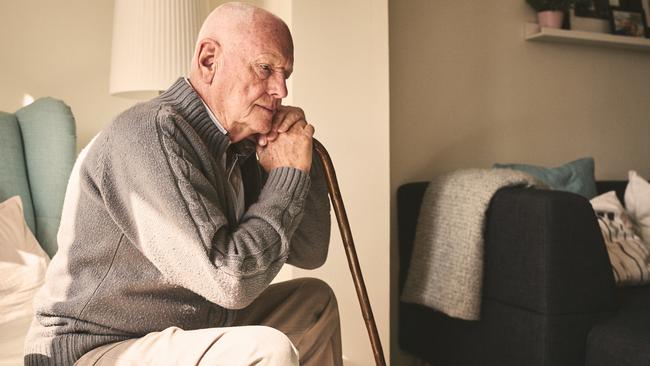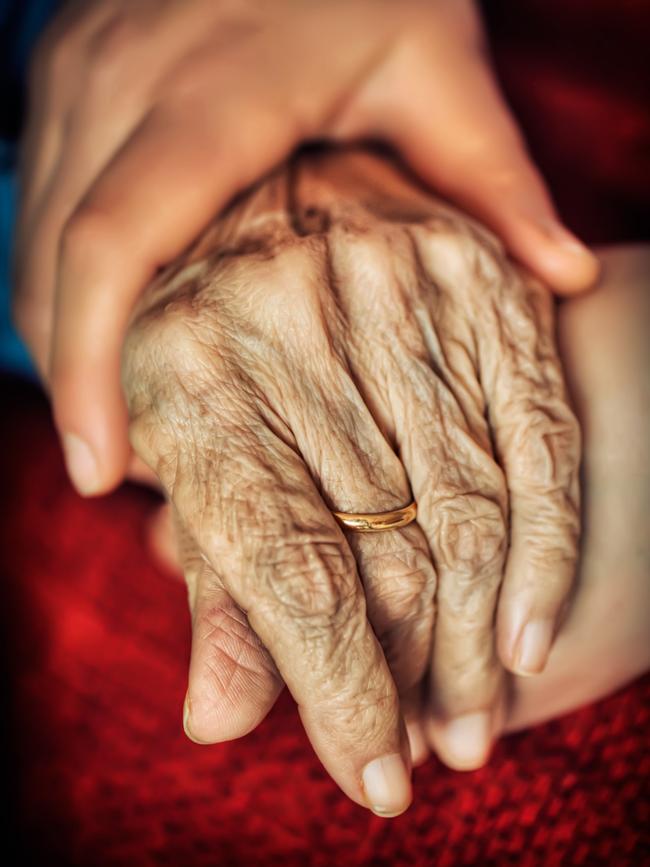COVID-19: Don’t wait for the elderly, at-risk lockdown
It may be a matter of weeks before a mandated lockdown of the aged and those who are most at risk. You should make a plan now.

May you live in interesting times – that most ironic and vaguely sinister of salutations is the new reality.
Two days ago, the Johnson government announced that anyone 70 years of age or older will be obliged to lockdown in “the coming weeks” in the UK.
This raises the delicious prospect of fake IDs being actively trousered, not showing a premature embrace of adulthood to obtain entry to licensed premises as is normally the case but in the hope of blurring the ravages of age so that septuagenarians might remain on the lam.
Will the plod start crash tackling the elderly only to have arrests interrupted by the offering of dodgy photo ID?
“Wait a minute, this says you’re 38.”
Government edicts such as this one are impossible to police and require broad community support. It will become more and more apparent that they are necessary in Australia as the pandemic takes hold.
COVID-19 has particularly disastrous consequences for the elderly as anyone who has been keeping an eye on US President Donald Trump lately will attest.
Just six days ago, 73-year-old Trump was proudly declaring COVID-19 was “totally under control.” Two weeks earlier he had mused the virus might “disappear by April” in what he suggested would be “like a miracle.”
On Tuesday, the Tangerine One declared the US was at war against an invisible enemy (COVID-19 is visible albeit under an electron microscope). Cash splash payments to US citizens, a la Rudd-Swan are on their way.
There is a strong sense that it is all too little too late.
The infection rate in the US is doubling every four days. There are pockets of high rates of infection, clusters of the epidemic forming in major cities.
Prior to a conference call with state governors yesterday, Trump and New York’s Andrew Cuomo engaged in Twitter contretemps.
“This is a national problem and there are no national rules,” Cuomo said at a presser. “If the federal government isn’t going to do what it should do, then the states have to try their best.”
Trump fired back on Twitter urging Cuomo to “do more”.
Cuomo replied moments later: “I have to do more? No — YOU have to do something! You’re supposed to be the President.”
Ouch.
I have to do more?
— Andrew Cuomo (@NYGovCuomo) March 16, 2020
No — YOU have to do something! You’re supposed to be the President. https://t.co/tYeDt1lcOZ
The penny may have finally dropped for the POTUS but the meaning of the term ‘exponential’ appears to be lost on some members of the local commentariat, who point to relatively low infection rates in Australia while wondering what all the fuss is about.
Currently infection rates are doubling every eight days in Australia.
For those who struggle with the concept of exponential growth, let me try and explain it.
Put two grains of rice on the left hand corner square on a chess board, then four on the square directly on its right where the knight would go, eight next on the bishop’s square, doubling as you go. By the time you get to the rook’s corner at the other end, you’ll need 256 grains of rice. A little messy and possibly a waste of perfectly good and vigorously hoarded rice, but doable.
Keep doubling and by the time you get to the halfway point on the board, you’re rummaging around in the pantry for more than a trillion grains of rice. You should probably stop there if you haven’t already. But if you doggedly soldier on by the time you reach the end of the board, you’re going to need 18 quintillion grains of rice, give or take a quadrillion.
Of course, human beings aren’t grains of rice. Try and make a paella out of human beings and you’re going to need a bigger pan and it’s not going to taste quite the same.
Humans are complex and complicated creatures with immune systems either firing up or losing force largely dependant on age. Once a human being hits 50, the immune system starts to drop away.

But there are others of all ages who are susceptible. People undergoing cancer treatments, especially on immunologic drugs, people who are immune system compromised for whatever reason or have their immune systems suppressed for a range of maladies including rheumatoid arthritis.
People on blood thinners for stroke prevention. People with high blood pressure or low blood pressure. People with asthma, heart disease, kidney disease, liver disease, blood disorders, diabetes, Common Variable Immune Deficiency, Mast Cell Disorder, Dysautonomia, Sjogren’s Syndrome. Women who have became pregnant recently. The list is long and the numbers are large.
These people should be planning and preparing for lockdowns with loved ones, friends and carers right now.
So it is with my mother, 86, and my stepfather, 94, living in Melbourne. They are self-funded retirees who have chosen to stay at home.
In their case they will commence a lockdown starting next week. They’ve been told to expect their threshold to be crossed only rarely over the next 12 weeks. It might be longer.
They get meals delivered as it is now. Supermarket shopping will be done by a relative who lives nearby. They have carers and a housekeeper coming into the place regularly. These people all have keys and know only to enter the home when my mother and her husband are in the sitting room with the door closed. They remain there while the carers change bedding, do laundry and clean. They can come out when the carers have left.
A registered nurse comes in twice a week to make assessments and supervise meds. Obviously physical contact will take place here. And my mum and her husband will go to scheduled medical appointments.
They can go for drives. Walks around the garden and a nearby park are encouraged. But they’re been told that contact with other people is dangerous and potentially lethal.
Anyway, that is what we have arranged. It’s a plan with plenty of holes, not least of all that my mother has dementia and quickly forgets instructions. But a plan is better than no plan at all. As World Health Organisation executive director, Dr Michael Ryan says, “Perfection is the enemy of the good when it comes to emergency management.”
It may be a matter of weeks before government mandates a lockdown of the elderly and the large number of others who are most at risk. It might be longer.
My view is governments are imperfect organisations. They make mistakes. Mistakes can have deadly consequences.
Make plans now. We don’t want to lose these people. As much as we’ll miss being with them and as much as we’ll worry about them, lockdowns for vulnerable people, especially elderly Australians should be practised where possible.
And don’t accept any fake IDs.








To join the conversation, please log in. Don't have an account? Register
Join the conversation, you are commenting as Logout